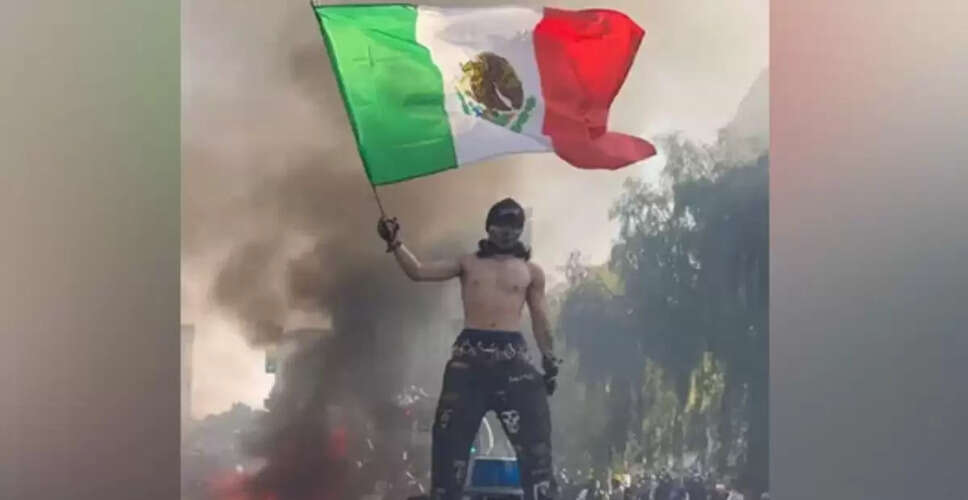Mexican Flag Sparks Controversy in Los Angeles Immigration Protests

Symbol of Protest
The green, white, and red flag of Mexico has become a prominent emblem in the ongoing immigration demonstrations in Los Angeles, as reported by various media outlets. Protesters are seen waving the Mexican flag alongside those from other Latin American nations and the United States, showcasing their support for immigrants and voicing their opposition to recent federal enforcement actions.
Since Friday, Los Angeles has been the epicenter of protests following raids conducted by ICE agents in the city's garment district. What began as peaceful gatherings escalated into confrontations, resulting in numerous arrests and instances of violence.
Government Response
In response to the unrest, President Donald Trump has deployed thousands of National Guard troops and Marines, a move that has drawn sharp criticism from Democratic Governor Gavin Newsom, who labeled it an 'illegal takeover' and a 'clear abuse of power.'
Cultural Significance
The Mexican flag has historically been a significant symbol in immigration protests, particularly in Los Angeles, which is regarded as the heart of the Mexican diaspora in the United States. Census data indicates that over 3.4 million individuals of Mexican descent reside in Los Angeles County, more than in any other county across the nation.
Political Reactions
Republican leaders have criticized the visibility of the Mexican flag during these protests. Vice President JD Vance expressed his concerns on social media, stating, 'Insurrectionists carrying foreign flags are attacking immigration enforcement officers.' Senator Markwayne Mullin echoed this sentiment, calling the protesters 'illegals' and questioning their motives.
The Department of Homeland Security has shared images depicting clashes between protesters and police, with demonstrators prominently displaying the Mexican flag. Stephen Miller, a senior advisor to Trump, referred to the protesters as 'foreign nationals' who are obstructing federal law enforcement efforts.
Defending the Symbol
Despite the backlash, many protesters and scholars have defended the flag's symbolic significance. Raul Hinojosa-Ojeda, a professor at UCLA, remarked that the demonization of such symbols is a tactic often employed by the Trump administration, which is aware that the Mexican flag is a common sight at these demonstrations.
Former Congressman Adam Kinzinger commented on the optics of the situation, suggesting that the presence of the Mexican flag detracts from the message of the protests, advocating instead for American flags to be carried.
Historical Context
The flag's role in protests has deep historical roots. Jorge Castaneda, a former Mexican foreign minister, noted that this practice dates back to the 1990s when many protested against Proposition 187. He emphasized that most current demonstrators are likely American citizens, as undocumented individuals face significant risks if they protest publicly.
Republican strategist Mike Madrid argued that waving the Mexican flag shifts the focus from American constitutional rights to issues of foreign loyalty and cultural assimilation.
A Symbol of Identity
Conversely, others view the flag as a representation of unity and cultural identity. Hinojosa-Ojeda stated, 'The flags represent their families and communities. It’s not about an international invasion.'
Antonio Rodriguez, an organizer with the Brown Berets, added, 'Having pride in one’s culture does not make someone un-American. Waving a Mexican flag signifies pride in our heritage and family.'
